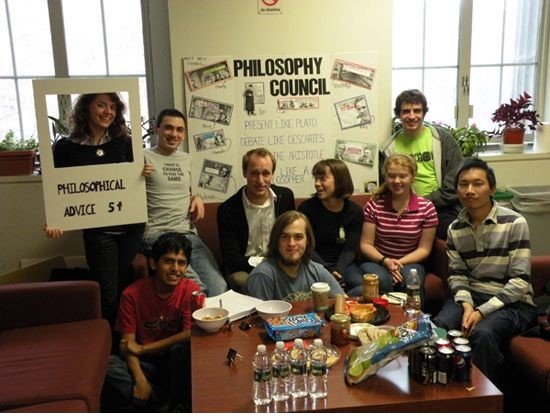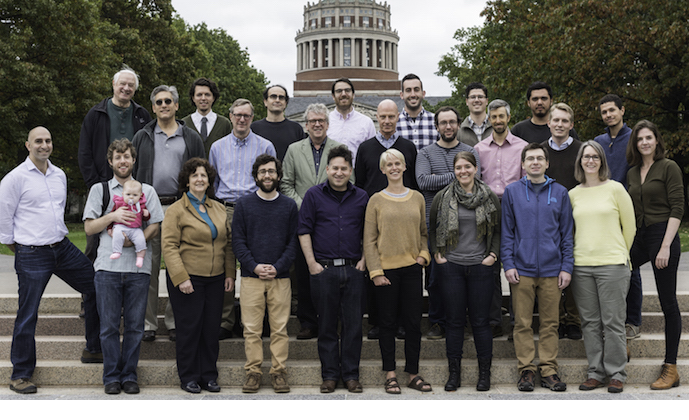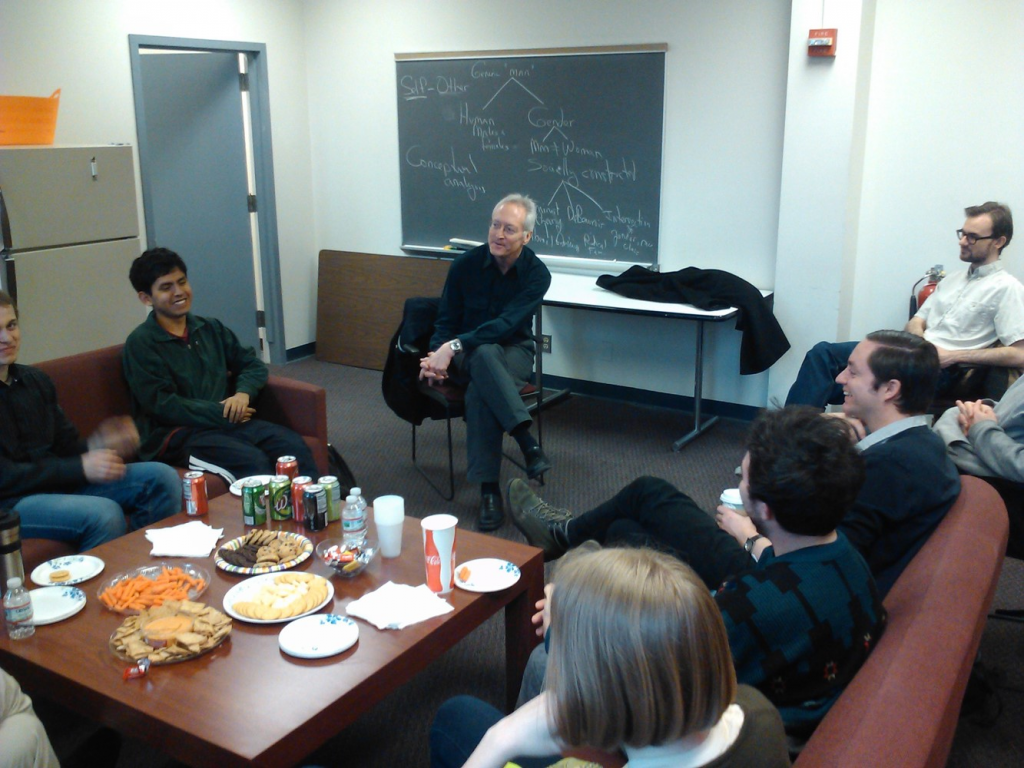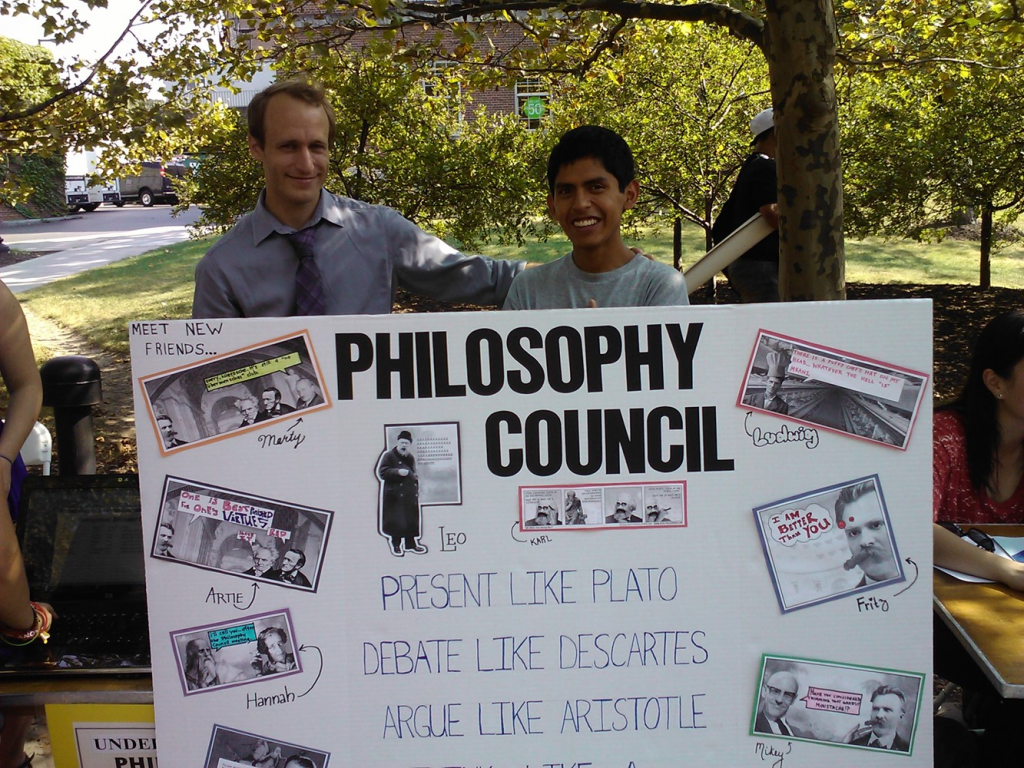by Sara Kowalski, Class of 2017, Humanities Fellow
Is college about studying or about discovering the meaning of life? Why not both? Here at Rochester, you can actually study life’s meaning! I’m of course talking about PHL 227: The Meaning of Life! While you’re at it, why not take PHL 127: Know Thyself: Wisdom/ Cognitive Science? After all, isn’t college about self-discovery? Isn’t college about attaining wisdom?
In short, why not major, minor, or at the very least cluster in philosophy?
Our department is very strong, covering five main fields of philosophy:
- Epistemology: theories of knowledge
- Ethics: theories of morality and moral principles
- Metaphysics: theories of existence, identity, cause-and-effect, time-and-space, etc.
- Political philosophy: theories of authority, justice, liberty, etc.
- Philosophy of science: theories of the foundations and implications of “science”
In other words, philosophy is about every critical, big-idea question humanity has ever pondered, questions for which there are no easy answers, if there are answers at all! (Puzzles and paradoxes have a special place in the heart of the philosopher.)
Here at Rochester, you can design your own major (meeting the structure requirements of course) or follow three focused tracks: (1) Law and Ethics, (2) History of Philosophy, and (3) Logical and the Philosophy of Science.
As you begin to take courses, you will notice there is a lot of overlap between philosophy and other fields, especially fields like cognitive science and law. Philosophy is a strong foundation for careers in many fields, and students are able to work and/or participate in internships during their undergrad years everywhere from law offices to social services organizations.
There are many ways to get involved within the department, whether it is working on research, attending (or even organizing!) the annual colloquium series of vising professors, or joining the Undergraduate Philosophy Council!
For more information, you can reach out to the undergraduate adviser, Professor William Fitzpatrick (william.fitzpatrick@rochester.edu).
The Undergraduate Philosophy Council

The Undergraduate Philosophy Council (UPC) meets every week on Fridays in the Philosophy Lounge. The meetings generally go from 3:30–5:00 pm, and they are filled with healthy, passionate discussion. Always student-led, one of the members chooses a topic they want to talk about, they present it, and then everyone discusses it. Think about it—where else are you going to have a serious, no-holds-barred conversation about the ethics of capitalism or the definition of disease?
The group is what the members make it, and it contains everything they bring with them—this means a diversity of backgrounds. Some students come from political science, others psychology, still others technology, and more! Some students are comfortable under a particular school of thought, whether it’s nihilism, anarcho-communism, etc., while others explore boundary-less.
As you begin to take part in these discussions, you’ll be challenged to think about the world differently. You may become more comfortable admitting when you’ve been wrong and more flexible in changing your views after being exposed to sound and valid reasoning. Better yet, you’ll develop your own ability to change other people’s views!
There is certainly overlap with the Debate Union here, and each year UPC and the Debate Union co-host a public debate relating to a philosophical topic. This year, the theme was “Sex Robots: Do They Do More Harm Than Good?”
If any of this sounds interesting to you, or if you have your own philosophical questions you’d love to discuss seriously with a group of your peers, definitely consider joining UPC when you come to Rochester!




